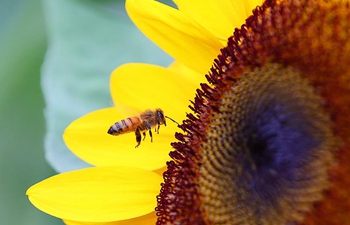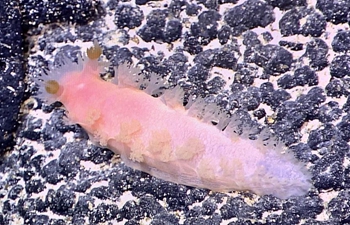CHICAGO, June 20 (Xinhua) -- Biochar may not be the miracle soil additive that many farmers and researchers hoped it to be, a study of the University of Illinois (UI) found.
Biochar may boost the agricultural yield of some soils, especially poor quality ones, but there is no consensus on its effectiveness, said the researchers.
Addressing past research inconsistencies, the researchers designed a systematic study using 10 common Illinois soil types to test the effects of mixing in varying concentrations of biochars from three different feedstocks: corn, Miscanthus and hardwood.
To add a dimension to the study that is common in real-world agricultural settings, the researchers also examined how two other sources of carbon, plant material burned in an uncontrolled open-atmosphere setting and corn stover, affect soils. Corn stover is composed of raw stalks, leaves and cobs that remain in the field after harvest.
Factoring in each scenario, triplicate analysis and control samples, the experiment produced 429 soil samples in which the researchers planted two corn seeds each.
After a 14-day germination period, the study showed that adding biochar from any of the feedstocks or production techniques had no substantial influence on the output of greenhouse gas production, plant growth dynamics or microbial community activity. However, the researchers did see some important differences in the soils that included corn stover and burnt plant material.
"The addition of corn stover which simulates actual field conditions led to a dramatic increase in greenhouse gas emissions, as well as a change in the soil microbial community," said Elizabeth Meschewski, a researcher with the Illinois Sustainable Technology Center (ISTC), a division of the Prairie Research Institute at UI, and lead author of the study.
"But, initial seedling growth was not affected when comparing these results to the soils with no additives. Addition of burnt plant material did show reduced plant biomass above ground, increased production of the greenhouse gas nitrogen oxide and altered soil microbial community," she added.
The researchers concluded that biochar might improve the quality of highly degraded or poor quality soils, but does not appear to provide any quality benefit to the soils used in this study.
Nevertheless, using biochar as an additive instead of raw biomass or burnt plant material could prevent microbe-generated greenhouse gas emissions, the researchers noted.
"For future studies, we recommend performing a similar study in many different soil types for the whole growing season for corn, not just 14 days, and possibly over several growing seasons," said ISTC researcher and study co-author B.K. Sharma.
The findings, posted on UI's website on Wednesday, have been published in the journal Chemosphere.

















